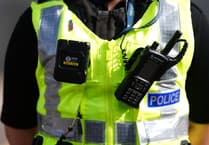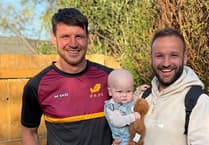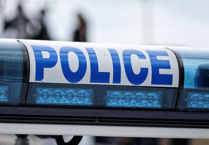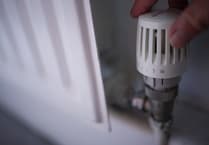A RMED Service veterans in West Devon who have been injured or wounded are being urged to take advantage of a multi-million, state of the art facility now being opened at HMS Drake in Devonport naval base.
The advanced £23-million Naval Service Recovery Centre for wounded, injured and sick serving military personnel, veterans and their families in the South West is due to be opened today (Thursday), by the Duke of York.
The centre comprises two buildings, Parker VC and Edneavour. It is the first in the region and is funded by the charity Help for Heroes, supported by the Royal British Legion, and run jointly with the Ministry of Defence.
Parker VC, completed in May 2013, comprises 60 single cabins, six family cabins, social spaces, a large multi-functional space, conference facility and 24-hour reception support.
All facilities are designed to help achieve long-term goals and aspirations by improving personal independence, raising morale and enjoying the camaraderie of fellow servicemen and veterans to help rebuild their lives.
Endeavour is the rehabilitation centre and includes a sprung-floor gymnasium, eight medical consultation rooms, a Support Hub for veterans, a multi-functional space containing Café Hero, a hydrotherapy area, changing rooms and a 25 metre, six-lane competition pool.
It caters for those living with life-changing injuries, offering them vital support for life.
Hasler Company is a military unit in the naval base, part of the Naval Service Recovery Pathway.
It primarily seeks to care for the most complex, seriously injured and long-term ill Naval service personnel.
Hasler's aim is to optimise recovery to enable its assigned personnel to achieve their maximum recovery potential, so that their continued service can be effectively assessed.
Officer Commanding Hasler Company, Major Scotty Mills, Royal Marines, said: 'The opening of the Endeavour Naval Service Recovery Centre represents a significant opportunity for my 91 complex, seriously injured and long-term ill Hasler Company patients.
'Since its inception five years ago, Hasler Company, a key part of the Naval Service Recovery Pathway, has been well supported both nationally and regionally and this state-of-the-art facility really demonstrates how determined we all are to ensure that we continue to support our wounded, injured and sick.'
Major Mills said the new centre supported the multi-faceted recovery activity that Hasler Company delivers in conjunction with Help for Heroes and other charitable organisations:
'It is now up to us to ensure that these facilities are utilised to their full potential and that our wounded, sick and injured, both serving and veterans, get to benefit from both the services and capabilities that it offers.
'We are most grateful to Help for Heroes and those who donate to them for this outstanding centre of excellence.'
He told the Times: 'We are investing in our wounded and sick. This is the pinnacle of facilities in the South West and the recovery centre will be utilised by all our services, as well as the veterans, working in partnership with Help for Heroes and the Recovery Pathway.
'We get them from point of injury through to a point of where they return back to their unit or they are medically discharged.
'The statistics are proving it is working. Out of 186 people who have come here, 90 percent have left and are either in full-time employment or taking up further education, which is a fantastic tribute to our staff and the investment in our people.
'We also take very seriously the provision for those with mental health issues and we are very careful to build an adaptive recovery routine which is best suited for the patient.
'A lot of effort goes into offering the resources and the best possible assistance to injured and sick individuals and their families, to give them a better future.'
The Commodore in charge of HMS Drake, where the Recovery Centre is based, is delighted with the new facilities, which he feels will enrich the base as a community.
'Devonport as a Naval base is going from strength to strength,' said Commodore Graeme Little.
'We are a very strong operational base for this country's defence and it is home now to a large number of ships and submarines and service personnel.'
He said since the strategic review of 2010 the Royal Navy was committed to retain both Plymouth and Portsmouth as bases.
The Commodore felt that the strength of the base was its commitment to those who worked there, and the Armed Services take seriously their responsibility and duty to the seriously wounded, the injured and sick.
'They deserve the best of the facilities to hopefully return back to their service or, if they leave, to ensure they find alternative employment or education.
'Hasler has been a huge success, over time, in achieving that and this facility will make that job a lot easier.
'We have here the expertise, the medical and clinical staff to make a difference to people's lives.'
One of the main driving forces behind the centre is Jock Easton from Help for Heroes, who lives in Mary Tavy.
When Jock was a lieutenant in the Royal Navy he was approached by Help for Heroes to find a solution on how the charity could work with the services to give practical support to those who were sick or wounded serving their country.
Two years ago saw the realisation of the project, with the construction of the Endeavour Centre and the Parker VC accommodation facility.
He told the Times: 'It has given me huge satisfaction to see the plans come to reality, bringing together all the expertise that has made this possible, working with all those people such as from the PFI, the MOD, Help for Heroes and the builders — all united to complete the task.
'I am also pleased to see we have reached a point where we are all working together for the greater good of the "blokes" who benefit from these wonderful facilities.
'It is enhancing their lives and ensuring they have the professional support to improve their lives, and their families', for the better.'
There is one message that Mr Easton wants to get over to Times readers and especially to former armed services personnel who could benefit from the state-of the-art facilities and its specialist services.
'We are very much open for business. Help for Heroes, with our partners such as Combat Stress and the Royal British Legion, are here to help.'
As for those people who made it all possible, the tens of thousands of who raised the money, from holding sponsored runs, walks and 'Hero' bike rides, washing cars, holding raffles and rattling tins in the street to buying a H4H wristband, Jock says a big, big ‚'thank you'.
'You have done a brilliant job but it just doesn't stop. We are now open for business and need more to continue.'
One of the active servicemen who is benefiting from the care and facilities of the centre is Royal Marine Liam Brentley of 40 Commando.
In 2010 he was serving in Afghanistan when his unit come under a 'massive attack' from the Taliban and during the gunfight, he was shot right through the head.
'The bullet went through my protective glasses and through the bottom of my neck, piercing my brain,' he said.
'I remember my mates carrying me and remember the pain and the screaming.'
Liam, aged 28, was taken back by fellow Marines to their sangar (their fortified position) and evacuated by American forces before being taken onto hospital, for another seven weeks.
He said: 'Surgeons took half my skull away as there was a lot of pressure on the brain. It was horrible.'
For someone who suffered so much and who now has a titanium plate to replace the part of his missing skull Liam has made tremendous progress.
His road to recovery continued at the Help for Heroes Centre at Headley Court in Epsom, Surrey where he did a lot of work with occupational and cognitive speech therapists.
'The injury to my brain resulted in problems with memory and speech loss, but after work with the staff there I am more organised.
'I still have seizures but simple things, like alerts on phones, to appointments and reminding me of my daily routine, all helps.'
Married to Samantha, Liam has a young family, step-children Katelyn and Alfie, and children Isabella, Joey and little Samantha.
Like all Royal Marines, Liam does not give up easily and is determined to make a future for himself and his family.
'I'm getting a lot better and working at my English and maths and IT, because I want to help my children with their education and help my wife who has been through a lot and can't do it all.
'She's been brilliant.
'My WO2 Sergeant Major Jim Morris has been a real blessing, he has helped me and the family God knows how many times.'
Despite his life-changing injuries Liam has a new goal in life. The boy from Bradford wanted to join the Royal Marines when he was 16 but his dad persuaded him to delay his decision.
Before his service career he played Rugby League for Sheffield Eagles and now wants to use the facilities open to him at the Recovery Centre to earn the relevant qualifications to forge a new career in the game he loves.
He is looking forward to coaching his former rugby team in Bradford, Dudley Hill RL Club.
'I've come a long way and I'm doing far better than expected. I'm working for my children and to be a good father,' he said.
No doubt the Royal Marine shot in the head in Afghanistan will achieve his ambition because, in common with fellow users of the recovery centre, and in his own words, 'I'm the sort of person who just doesn't give in!'
Royal Navy Leading Hand Laura Pendlington has set her targets on returning to the profession she loves.
Laura, aged 26, from near Darlington in the North East of England, is based with Hasler Company.
Two years ago, while on duty as a nurse on Royal Fleet Auxiliary Argus, she developed a chest infection that laid her low and eventually she was diagnosed with scoliosis, a spinal deformity which caused her a lot of pain, so much so that she was unable to do her job.
But in January at Hasler, she was given a goal for a recovery plan, a tough course of physical training and strengthening.
Laura said: 'They changed my meds (medication), gave me physio, acuapuncture, sessions in the hydro pool and sorted out my fitness. I have also been doing occupational therapy.
'I just want to get back to normal as a nurse.
'I love my job, not just for the normal cliché that I want to help people, because of course you do.
'Without wishing to sound big headed, nursing is one of those things I am good at. It's not for everybody and it was something I took to straight away.
'I don't know how long it will take me to get back, but now I'm at Hasler I couldn't ask for anything more to help me reach my goal.
'Their main aim is to get us better and my aim is to get better, so it's just a waiting game. All I want to do is return to the job I love.'
Colour Sergeant Nick Martin-Jones, a Royal Marine physical training instructor, works with those with complex and long term injuries and is responsible for their exercise and rehabilitation.
He said the mental attitude of the assigned ranks to Hasler Company played an important part in progressing from their injuries.
'They come here with life changing injuries which are very difficult to come to terms with but when they leave you see a big difference in terms of their own self image; our job is to give their identity back to them — fortunately by nature, service people are competitive and challenging, which helps them in their recovery.'
CSgt Martin-Jones is looking forward to working with members of the Team GB Para Olympic squad, who will be using the facilities to train and prepare for major international competitions such as the Commonwealth Games and the next Olympics in Rio de Janiero.
He said: 'I have an outstanding job and it gives me a great deal of satisfaction to see the assigned ranks come in and go through the rehab and see them make progress.
'It's a great feeling when you get it right!'
One of the veterans to benefit through the 'Help for Heroes' support work is former RAF Aircraftswoman Amy Jane Fletcher.
She suffers from bilateral radiocarpal instability and Ehlers-Danlos syndrome, which disrupts structural proteins in skin, ligaments, cartilage and blood vessels.
It meant that she was given a medical discharge from the RAF in 2008.
Amy Jane, aged 27 from Ivybridge, said: 'I went from a very active person to somebody who wants to be active, it's incredibly frustrating.
'You do not choose to leave your careers while still in your twenties.
'All my life, from the age of four, I wanted to join the RAF, and now to retire from what I thought was my whole life career, is extremely hard.'
But with the help of the Armed Services' Career Transition Partnership and training, she has now become a support worker for adults with learning difficulties as well as a scout leader.
She is also grateful for the help from Help for Heroes and Hasler Company, which she described as 'brilliant'.
One veteran support staff worker she is especially grateful to is 'Mini' Mouncher from Horrabridge.
Mini told the Times: 'Veterans can be assured that the support they get is not just for five minutes but for life.
'As long as their is a Help for Heroes there will be help and support for our veterans.'
l If there are any veterans who feel they could benefit from the Recovery Centre they should make contact through the website http://www.helpforheroes.org.uk">www.helpforheroes.org.uk




